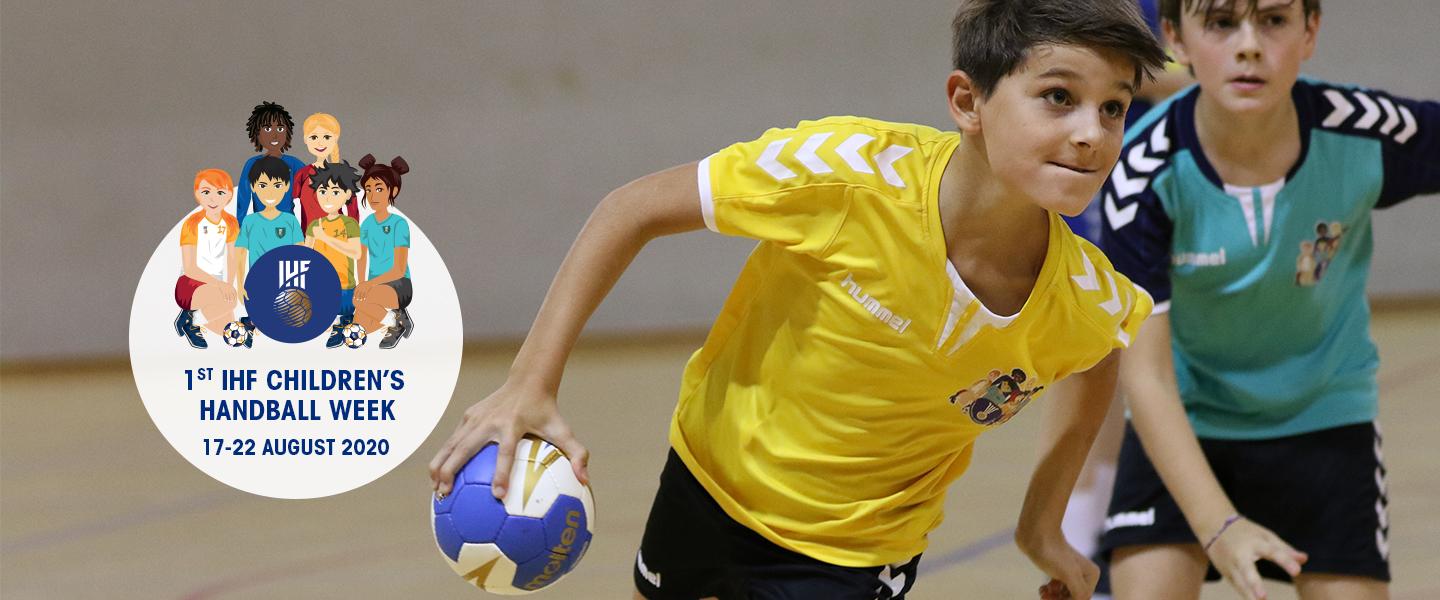IHF Virtual Academy continues with successful 1st IHF Children’s Handball Week
27 Aug. 2020

The 1st IHF Children’s Handball Week saw participants join from around the world and provide a wealth of positive feedback. The six lectures forming the programme, which ran from 17 to 22 August, were curated to introduce handball for children through various aspects. An increased number of National Federations and children’s coaches and teachers now have the information needed to implement or improve their own programmes for children, as well as to join the Handball at School (H@S) programme.
“A lot of federations contacted us that they would like to have help with explication of the Handball at School programme, and how to start with handball for children, because federations also have a big challenge to explain the differences between adult handball and children’s handball,” says H@S Working Group Chairwoman Dr Ilona Hapkova.
“For this reason, we prepared the 1st IHF Children’s Handball Week to produce some issues, some reasons why handball is so suitable for the youngest category, and explain a little bit about the basic contents, the basic information and philosophy of the [H@S] programme, and the suitability of this programme. As children can start easily and we don’t need a lot of materials, it’s necessary only to understand the game a little bit and know the basic rules of mini handball.”
In terms of viewer numbers, on Zoom the six-day programme saw a total of just under 3,000 views, while more than 100,000 unique viewers saw the lectures on Facebook. On the IHF Facebook page, the programme overall, including a daily challenge for children, reached over 800,000 users.
In addition, prior to the 1st IHF Children’s Handball Week, the IHF H@S Working Group asked National Federations to participate in a survey about children’s handball activities in their country. On the final day of lectures, Hapkova conducted a draw to award one of the nations that participated in the survey with a prize: An online video session specifically for children with a handball star, where the established player will introduce themselves, provide handball tips to the children and share some of their experiences. This prize was won by American Samoa.
“We received a lot of positive feedback that now they [National Federations, coaches and teachers] understand how mini handball is a key for successful development. Now they want to prepare more sessions for the training, for the education of the children, and how to teach them, and also to create the special competitions for the youngest children, through school leagues, through mini handball tournaments and festivals,” says Hapkova.
At the end of the final lecture, Hapkova introduced the upcoming programmes in the IHF Virtual Academy: the 2nd IHF Children’s Handball Week as well as a symposium for coaches of youth players (aged 13 to 18), which will focus on basic training and well as training of talented players. These programmes are being created by the IHF in response to demand expressed by National Federations and individuals participating in the IHF Virtual Academy programmes so far.
“We react to this request, and the 2nd [Children’s] Handball Week will be more about the practicals. That means we will show more the exercises, games and suitable activities which will develop the handball skills but also general motor skills.”
More information on the H@S programme can be found here, while more information on the IHF Virtual Academy is available here.

